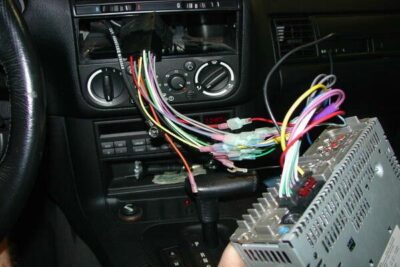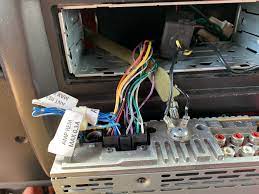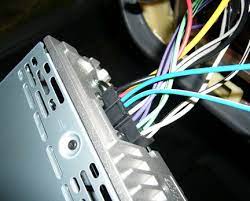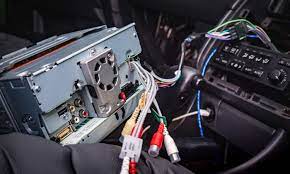When it comes to enjoying a high-quality audio experience while driving, a well-functioning car audio system is crucial. However, even the most advanced and sophisticated car audio setups can encounter issues that affect their performance.
One such problem that often arises is a bad ground connection. The ground connection serves as the electrical reference point for the audio system, and any disruption or degradation in this connection can lead to a variety of symptoms that negatively impact the audio quality.
In this article, we will explore the common symptoms of a bad ground car audio and provide insights into how to identify and address this issue effectively.
What is a ground in a car audio system?
In a car audio system, the term “ground” refers to the electrical connection that provides a reference point for the flow of electrical current. It serves as a return path for the current to complete the circuit.
The ground connection in a car audio system is typically established by connecting the negative terminal of the car battery to the vehicle’s chassis. This connection ensures that any electrical components, including the audio system, have a common reference point for proper operation.
The ground connection is crucial for several reasons. Firstly, it allows the audio system to draw power from the battery and distribute it to the various components. Secondly, it helps eliminate or minimize electrical noise and interference, such as alternator whine or static, that can degrade the audio quality. A solid ground connection ensures a stable and clean power supply to the audio system, allowing it to function optimally.
A well-grounded car audio system provides a stable electrical foundation, promoting efficient performance and minimizing potential issues. However, a bad or faulty ground connection can lead to various problems, impacting the sound quality and overall functionality of the car audio system. Identifying and addressing ground-related issues is essential for maintaining an enjoyable and immersive audio experience while driving.
Why is a good ground important for car audio systems?
A good ground connection is of utmost importance for car audio systems due to several reasons:
- Electrical Stability: A solid ground connection ensures a stable and consistent flow of electrical current within the audio system. It serves as a reference point for the return path of the current, allowing it to complete the circuit properly. Without a reliable ground connection, the flow of electricity can become erratic, leading to voltage fluctuations and unstable performance of the audio system.
- Power Distribution: The ground connection is responsible for facilitating the distribution of power from the car’s battery to the audio system’s components. It ensures that all components receive the necessary power to function optimally. A poor ground connection can result in insufficient power reaching the audio system, leading to reduced sound quality, distortion, or even intermittent operation.
- Noise Reduction: One of the key roles of a good ground connection is to minimize electrical noise and interference. In a vehicle, various electrical components and systems generate electromagnetic fields that can interfere with the audio signals. A proper ground connection helps to dissipate and divert this unwanted electrical noise, reducing the chances of it being picked up by the audio system and causing audio distortion or static.
- System Protection: A well-grounded car audio system acts as a safeguard against potential electrical damage. Without a proper ground connection, electrical anomalies such as voltage spikes or surges can occur, which may harm the audio components or even other electronic systems in the vehicle. A solid ground connection helps to prevent such electrical mishaps and ensures the longevity and reliability of the car audio system.
Furthermore, a good ground connection is crucial for car audio systems as it promotes electrical stability, facilitates proper power distribution, reduces electrical noise, and safeguards the system from potential damage. It plays a vital role in delivering high-quality sound, maintaining system integrity, and enhancing the overall listening experience while driving.
Common symptoms of a bad ground in a car audio system
When a car audio system experiences a bad ground connection, several symptoms may manifest. These common indicators can help identify potential ground-related issues:
- Poor Sound Quality: One of the most noticeable symptoms of a bad ground in a car audio system is degraded sound quality. You may experience a significant decrease in audio clarity, with the sound appearing muffled, distorted, or lacking depth. This can include fuzzy or unclear vocals, diminished bass response, and overall reduced audio fidelity.
- Engine Noise or Alternator Whine: A faulty ground connection can lead to unwanted engine noise or alternator whine being audible through the speakers. These noises often change with the engine RPM and are typically characterized by a high-pitched whining or buzzing sound. The presence of such noise indicates poor grounding, causing interference with the audio signals.
- Intermittent Operation: A bad ground connection can cause the car audio system to work intermittently or erratically. The system may randomly turn on and off, speakers may cut in and out, or certain functions like volume control may become unresponsive. These irregularities in operation are often a result of an unstable electrical connection due to a faulty ground.
- Electrical Pops or Clicks: Another symptom of a bad ground is the occurrence of pops or clicks from the speakers. These sudden, brief sounds may arise when starting or stopping the engine, or when operating other electrical components in the vehicle. They indicate electrical disruptions or transients caused by an inadequate ground connection.
- Dimming Lights: In some cases, a faulty ground in the car audio system can impact the vehicle’s overall electrical system. As a result, you may observe lights dimming or flickering, particularly when playing music at higher volumes. This phenomenon signifies an inadequate grounding point, which leads to voltage drops and inconsistent power supply.
It is important to note that while these symptoms are commonly associated with a bad ground in a car audio system, they can also be indicative of other issues. Thus, it is recommended to consult a professional or perform a thorough inspection to accurately diagnose and resolve the problem.
How to identify if the ground is the issue in your car audio system?
To identify if the ground is the issue in your car audio system, you can follow these steps:
- Check for Common Grounding Points: Start by inspecting the grounding points in your car audio system. The most common grounding points include the negative terminal of the car battery, the chassis or metal frame of the vehicle, and dedicated grounding wires connected to the audio components. Ensure that these connections are secure, free from corrosion, and tightly fastened.
- Visual Inspection: Conduct a visual inspection of the ground connections and wires. Look for any loose, frayed, or damaged wires that may indicate a poor ground connection. Additionally, check for signs of corrosion or rust on the grounding points, as this can hinder the flow of electrical current.
- Wiggle Test: With the car audio system turned on, gently wiggle the ground wires and connections while observing the audio performance. If you notice any changes in sound quality or if the system turns on and off intermittently, it could indicate a loose or faulty ground connection.
- Test with Different Power Source: Connect the car audio system to a separate power source, such as a portable battery or a separate car battery, while maintaining the ground connection to the vehicle. If the audio quality improves or the issues are resolved, it suggests that the original ground connection in the vehicle may be the problem.
- Use a Multimeter: A multimeter can help you measure the resistance between the ground connection points. Set the multimeter to the resistance or ohms mode and touch the leads to the ground wire and a known good ground point (e.g., a metal part of the vehicle’s chassis). A low or zero resistance reading indicates a good ground connection, while a high resistance reading suggests a bad ground.
- Seek Professional Help: If you have performed the above steps and are still uncertain about the ground connection, it is recommended to consult a professional car audio technician. They have the expertise and specialized equipment to accurately diagnose and rectify ground-related issues.
Remember, a bad ground connection is just one of the potential causes of audio system problems. If you are unsure or unable to identify the issue, it’s best to seek professional assistance to ensure proper diagnosis and resolution.
Testing for ground issues using a multimeter
Testing for ground issues using a multimeter can help determine if there are any problems with the ground connection in your car audio system. Here’s how you can conduct the test:
- Set up the Multimeter: Switch your multimeter to the resistance or ohms mode. This mode measures the resistance between two points and is suitable for testing ground connections.
- Ground Connection Point: Identify the ground connection point you want to test. This could be the negative terminal of the car battery, a dedicated grounding point, or any metal part of the vehicle’s chassis that is known to provide a good ground.
- Disconnect Power: Before proceeding, ensure that the car audio system is turned off and disconnected from any power source to avoid any electrical mishaps during testing.
- Testing Procedure: Take the black lead (negative) of the multimeter and connect it to the ground connection point you want to test. Then, take the red lead (positive) and touch it to a known good ground, such as the negative terminal of the car battery or a metal part of the chassis.
- Read the Resistance: Once the leads are securely connected, the multimeter will display a resistance reading. A low or zero resistance reading indicates a good ground connection, meaning that the current can flow smoothly. On the other hand, a high resistance reading suggests a bad ground, indicating a poor or insufficient connection.
- Interpret the Results: Ideally, a good ground connection should show a low resistance reading (near zero ohms). If the resistance reading is significantly higher, it indicates a potential ground issue that needs to be addressed.
- Verify and Recheck: To ensure accurate results, recheck the ground connection by testing multiple points. Test the resistance between different grounding points and known good grounds to verify the consistency of the readings. This helps rule out any measurement errors or intermittent grounding issues.
Remember, if you are unsure about performing the multimeter test or interpreting the results, it is recommended to seek professional assistance. A trained technician can accurately diagnose any ground-related problems in your car audio system and provide appropriate solutions.
How to fix a bad ground in a car audio system?
Fixing a bad ground in a car audio system requires careful attention to detail and proper troubleshooting. Here are the steps to help you rectify a faulty ground connection:
- Identify the Problematic Ground Point: Begin by identifying the specific ground connection that is causing the issue. This could be the grounding point of the car battery, a grounding wire, or any other grounding point within the audio system. Inspect the connections visually to check for any signs of looseness, corrosion, or damage.
- Clean the Ground Connection: If corrosion or rust is present on the ground connection, it can hinder the flow of electrical current. Use a wire brush or sandpaper to carefully clean the surfaces of the connection point, ensuring it is free from any debris, oxidation, or rust. Clean both the connection point and the connecting wire.
- Ensure a Secure Connection: Make sure the ground connection is secure and tightly fastened. Ensure that any bolts, screws, or clamps are properly tightened. This will help maintain a solid connection and prevent any future issues.
- Improve the Grounding Point: In some cases, the existing grounding point may not provide a reliable connection. Consider selecting an alternative grounding point that is closer to the car audio system. Look for a metal surface or component on the vehicle’s chassis that is free from paint, rust, or corrosion. Use sandpaper or a wire brush to remove any paint or debris from the chosen grounding point, ensuring a clean metal-to-metal contact.
- Use Dedicated Grounding Wires: If the existing ground wires are damaged or ineffective, it may be necessary to replace them. Select high-quality, appropriately sized grounding wires for the car audio system. Connect one end of the wire to the ground point and the other end to a suitable grounding point on the vehicle’s chassis or body.
- Improve Grounding Wire Connections: When connecting grounding wires, ensure a solid and reliable connection. Strip the ends of the wires to expose clean copper, and tightly crimp or solder them to any connectors or terminals. Use heat shrink tubing or electrical tape to insulate the connections and protect them from moisture or damage.
- Test the Ground Connection: After making the necessary adjustments and improvements, use a multimeter to retest the ground connection as explained earlier. Ensure that the resistance reading shows a low or zero ohms, indicating a good ground connection.
- Seek Professional Assistance if Needed: If you have followed the above steps and are still experiencing ground-related issues, it is advisable to consult a professional car audio technician. They have the expertise and specialized equipment to diagnose and rectify complex grounding problems.
Remember, ensuring a solid ground connection is essential for optimal performance and sound quality in a car audio system. Taking the time to properly diagnose and fix any ground-related issues will result in a more enjoyable and reliable audio experience while driving.
The importance of proper wiring and grounding in car audio systems
Proper wiring and grounding play a crucial role in the performance and reliability of car audio systems. Here are the key reasons highlighting their importance:
- Electrical Stability: Proper wiring ensures a stable flow of electrical current within the audio system. It helps maintain consistent voltage levels, preventing fluctuations that can lead to audio distortion, intermittent operation, or damage to the audio components. Without proper wiring, the system may experience power drops, voltage spikes, or inadequate power distribution, negatively affecting audio quality and overall system performance.
- Noise Reduction: Effective wiring and grounding help minimize electrical noise and interference. Vehicles contain various electrical components and systems that generate electromagnetic fields, which can interfere with the audio signals. Properly routed and shielded wiring, along with solid grounding, helps reduce the chances of picking up unwanted noise and ensures a clean audio signal, resulting in improved sound quality.
- Preventing Ground Loops: Ground loops occur when there are multiple grounding paths, leading to unwanted electrical interference. They often manifest as a low-frequency humming or buzzing sound in the audio system. By following proper wiring and grounding techniques, such as utilizing a single, dedicated ground point, you can prevent ground loops and eliminate associated noise issues.
- Protection against Electrical Damage: Proper wiring and grounding also contribute to protecting the audio system and other electrical components in the vehicle. They help prevent electrical mishaps, such as short circuits or voltage spikes, which can damage sensitive audio equipment or even cause harm to the vehicle’s electrical system. Adequate wiring practices, including correct wire sizing, insulation, and secure connections, minimize the risk of electrical accidents and extend the lifespan of the audio system.
- System Integration and Expandability: Proper wiring and grounding facilitate seamless integration and future expandability of the car audio system. Following standardized wiring practices ensures compatibility with aftermarket audio components and accessories, making it easier to upgrade or modify the system in the future. It allows for efficient and clean installation, reducing the likelihood of compatibility issues or signal degradation.
- Reliable Operation: Ultimately, proper wiring and grounding contribute to the overall reliability and longevity of the car audio system. By establishing a solid electrical foundation, they help maintain consistent power supply, reduce the risk of electrical issues, and ensure the system operates smoothly under various conditions. A reliable audio system enhances the driving experience and minimizes the chances of unexpected audio failures or interruptions.
Also, proper wiring and grounding are vital for a well-functioning and high-quality car audio system. They provide electrical stability, minimize noise and interference, prevent ground loops, protect against electrical damage, support system integration, and ensure reliable operation.
Investing time and effort in proper wiring and grounding practices is essential for maximizing the performance and longevity of your car audio system.
How a bad ground can damage car audio components?
A bad ground in a car audio system has the potential to cause damage to various audio components. Here’s how:
- Voltage Spikes: A bad ground can result in voltage spikes or irregularities in the electrical current flowing through the system. These sudden increases in voltage can exceed the tolerances of audio components, leading to their malfunction or even permanent damage. Amplifiers, speakers, and other sensitive audio equipment may not be able to handle the excessive voltage, causing components to overheat, blow fuses, or experience internal failures.
- Overheating: Inadequate grounding can lead to increased resistance in the electrical circuit, resulting in excessive heat buildup. This can affect the audio components, particularly amplifiers, which require efficient grounding for proper cooling. Overheating can lead to thermal stress, component failure, and reduced lifespan of the affected components.
- Noise and Interference: A bad ground connection can introduce electrical noise and interference into the audio system. This unwanted noise can distort the audio signals, leading to poor sound quality and potential damage to speakers and other components. Prolonged exposure to distorted or clipped signals can cause speakers to strain, overheat, or even blow out.
- Ground Loops: A common issue associated with bad grounding is the occurrence of ground loops. Ground loops happen when there are multiple ground paths or unequal grounding potentials in the system. They can cause a low-frequency humming or buzzing noise in the audio output. The constant presence of this noise can strain speakers and other audio components, potentially leading to damage or premature wear.
- Voltage Drops: A compromised ground connection can result in voltage drops within the audio system. Insufficient voltage can cause the amplifier to operate below its optimal level, resulting in reduced power output and compromised audio performance. In extreme cases, voltage drops can cause the amplifier to enter protection mode or shut down entirely.
- Signal Distortion: A bad ground can interfere with the proper transmission of audio signals, leading to signal distortion. Distorted signals can cause audio components to operate outside their intended range, resulting in audible distortion, clipping, or even damage to speakers and amplifiers.
It is important to note that the severity of damage caused by a bad ground can vary depending on the specific circumstances and the sensitivity of the audio components involved. However, in general, a compromised ground connection increases the risk of electrical issues that can damage or impair the performance of car audio components.
Ensuring a proper ground connection is essential to protect the investment made in the audio system and maintain its longevity and optimal performance.
How to prevent ground noise in car audio systems?
Preventing ground noise in car audio systems is crucial for maintaining optimal sound quality. Here are some effective measures to help minimize or eliminate ground noise:
- Single Dedicated Ground Point: Establish a single dedicated ground point for the entire car audio system. This helps avoid ground loops, which can introduce unwanted noise. Choose a reliable grounding location, such as a clean metal surface on the vehicle’s chassis, and connect all grounding wires from the audio components to this central point.
- Proper Wiring Techniques: Employ proper wiring techniques to minimize noise interference. Use shielded cables for audio signal transmission, as they provide better protection against electromagnetic interference. Ensure that the wiring is properly routed away from power cables, engine components, or other potential sources of electrical noise.
- Ground Wire Quality: Utilize high-quality grounding wires for all audio components. Opt for thick, low-resistance wires that can efficiently carry electrical current. Avoid using undersized or poor-quality wires, as they can contribute to increased resistance and noise issues.
- Secure and Clean Connections: Ensure that all ground connections are secure and free from corrosion or debris. Clean the ground connection points using a wire brush or sandpaper to remove any oxidation or rust that may hinder proper grounding. Use suitable connectors or terminals and ensure a tight and reliable connection.
- Proper Grounding for Amplifiers: Pay special attention to grounding the amplifiers in the car audio system. Amplifiers draw significant power and require robust grounding. Follow the manufacturer’s guidelines for amplifier installation, including using the recommended gauge of grounding wire and securing it to a solid grounding point on the vehicle’s chassis.
- Avoid Mixing Ground Points: Keep the audio system’s ground separate from other vehicle systems, such as the electrical or lighting systems. Mixing ground points can lead to potential ground loop issues and introduce unwanted noise into the audio system.
- Use Ground Loop Isolators: If ground noise persists despite proper grounding techniques, consider using ground loop isolators. These devices help break the ground loop and eliminate the noise caused by unequal grounding potentials. Install the isolators in-line with the audio cables that are experiencing ground noise.
- Minimize Power Supply Interference: Ensure that the power supply to the car audio system is clean and free from electrical noise. Use high-quality power cables, properly sized for the system’s power requirements. Additionally, consider using a noise filter or power conditioner to reduce any unwanted interference from the vehicle’s electrical system.
- Professional Installation: For complex audio systems or persistent ground noise issues, it is advisable to seek professional installation and troubleshooting. Professional car audio technicians have the expertise and specialized tools to diagnose and address ground noise problems effectively.
By implementing these preventive measures, you can significantly reduce or eliminate ground noise in your car audio system, resulting in cleaner sound reproduction and an enhanced listening experience.
Grounding tips for DIY car audio installations
If you’re embarking on a DIY car audio installation, proper grounding is crucial for optimal performance and to avoid potential issues. Here are some grounding tips to consider during your DIY project:
- Understand Grounding Basics: Familiarize yourself with the basic principles of grounding in car audio systems. Learn about the importance of grounding, potential issues like ground loops, and proper grounding techniques to ensure a successful installation.
- Locate a Solid Ground Point: Identify a suitable grounding point in your vehicle. Look for a clean metal surface on the chassis that is free from paint, rust, or corrosion. This ensures a solid connection and helps minimize resistance. Avoid grounding to components like seat belts, gas tanks, or suspension parts.
- Clean the Grounding Point: Before establishing the ground connection, ensure that the chosen grounding point is clean and free from any debris, paint, or rust. Use sandpaper or a wire brush to remove any surface contaminants, providing a good metal-to-metal contact for a secure ground connection.
- Use Proper Grounding Wire: Select an appropriate gauge grounding wire for your audio system. Refer to the manufacturer’s recommendations or consult a car audio professional to determine the suitable wire size based on the system’s power requirements. Thicker wires with lower resistance are generally better for grounding.
- Secure Ground Connections: Make sure all ground connections are secure and tight. Use crimp connectors, ring terminals, or other suitable connectors to attach the grounding wire to the grounding point. Ensure that the connections are properly tightened to maintain a reliable electrical contact.
- Minimize Ground Wire Length: Keep the ground wire as short as possible to minimize resistance and potential noise issues. Avoid excessively long ground wires, as they can introduce voltage drops and increase the risk of interference. Position your audio components close to the grounding point whenever feasible.
- Separate Grounds: Maintain separate ground connections for different audio components to avoid ground loops. Each component should have an individual ground wire leading to the common grounding point. This helps prevent unwanted noise caused by shared grounding paths.
- Insulate and Protect Ground Connections: After establishing the ground connections, insulate them using heat shrink tubing, electrical tape, or other suitable insulation materials. This helps protect the connections from moisture, corrosion, and accidental short circuits, ensuring long-term reliability.
- Test and Verify: Once the grounding is complete, test the ground connection using a multimeter as mentioned earlier to ensure a low resistance reading. This verifies that the ground is properly established and minimizes the risk of potential grounding issues.
- Follow Wiring Best Practices: Properly route and secure all wiring, including the grounding wire, to prevent interference or accidental damage. Keep wiring away from power cables, engine components, and moving parts to minimize the risk of noise and potential electrical problems.
While these grounding tips are valuable, always consult the manufacturer’s instructions, wiring diagrams, and, if needed, seek guidance from experienced professionals for complex installations. Following proper grounding practices ensures a reliable and high-performance car audio system in your DIY project.
Common mistakes to avoid when grounding car audio systems
When grounding car audio systems, it’s important to be aware of common mistakes that can lead to issues or suboptimal performance. By avoiding these mistakes, you can ensure a proper grounding setup. Here are some common errors to steer clear of:
- Insufficient Grounding Wire Gauge: Using an undersized grounding wire is a common mistake. It increases resistance and can lead to voltage drops, inadequate grounding, and potential noise issues. Refer to the manufacturer’s recommendations or consult a car audio professional to select the appropriate gauge wire based on your system’s power requirements.
- Poor Ground Point Selection: Choosing an improper ground point can cause grounding problems. Avoid grounding to components such as seat belts, gas tanks, or suspension parts. Instead, select a clean metal surface on the vehicle’s chassis that provides a solid connection and is free from paint, rust, or corrosion.
- Inadequate Ground Connection: Insufficiently securing ground connections is another common mistake. Loose or poorly connected ground wires can result in intermittent connections, increased resistance, and potential noise or performance issues. Ensure that all ground connections are securely fastened and tightened to maintain a reliable electrical contact.
- Mixing Grounds: Avoid mixing the grounds of different components or systems. Keep the audio system’s ground separate from other vehicle systems, such as the electrical or lighting systems. Mixing ground points can introduce ground loops, resulting in unwanted noise and interference in the audio system.
- Lack of Ground Wire Insulation: Neglecting to insulate and protect ground connections is a common oversight. Exposed ground wires can be vulnerable to moisture, corrosion, and accidental short circuits. Always use appropriate insulation materials, such as heat shrink tubing or electrical tape, to protect and secure the ground connections.
- Overlooking Ground Loop Isolators: Ground loops can occur when multiple grounding paths exist, leading to unwanted noise in the audio system. Failing to address ground loops is a mistake to avoid. Consider using ground loop isolators, which help break the ground loop and eliminate associated noise issues.
- Insufficient Testing and Verification: Skipping the crucial step of testing and verifying the ground connection can lead to undetected grounding problems. Always use a multimeter to measure the resistance of the ground connection, ensuring a low or zero ohm reading. This step confirms that the ground is properly established and minimizes the risk of potential grounding issues.
- Ignoring Professional Advice: Attempting complex installations without seeking professional advice or guidance is a common mistake. If you’re unsure about proper grounding techniques or encounter persistent grounding issues, it’s advisable to consult a car audio professional. They have the knowledge and expertise to assist you in achieving an optimal grounding setup.
By avoiding these common mistakes and following proper grounding practices, you can establish a reliable and effective grounding system for your car audio setup. This ensures optimal performance, reduces the risk of noise issues, and helps maintain the longevity of your audio components.
Recommended:
- Earbuds make my ears itch: Reasons and solution
- Why do musicians wear headphones?
- Can AirPods survive the washing machine?
- What is an interlude?
Conclusion
If you need to learn about the symptoms of a bad ground car audio, we have got you covered here. Identifying and addressing symptoms of a bad ground in a car audio system is essential for ensuring optimal audio performance. Common symptoms such as engine noise, audio distortion, intermittent operation, or electrical issues can indicate a faulty ground connection.
By understanding these symptoms and taking appropriate measures, such as testing with a multimeter, checking connections, and addressing grounding issues, you can restore proper grounding and enjoy a high-quality audio experience in your car. Don’t overlook the importance of a solid ground connection, as it plays a critical role in the performance, reliability, and longevity of your car audio system.




